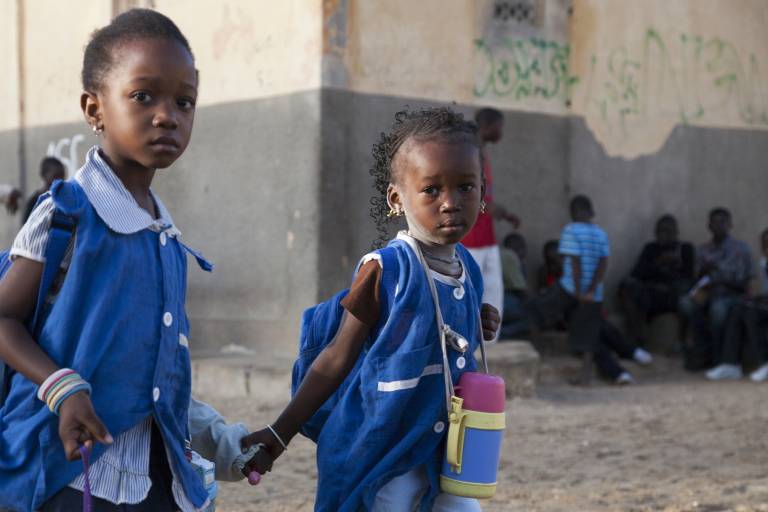Improving the educational outcomes for children affected by stunting and undernutrition
A UCL-led research partnership spanning three continents is developing evidence-based educational tools to reduce childhood stunting and help more young people to meet their potential.

14 June 2022
Stunting affects over 162 million children worldwide, mainly in Africa and Asia, where poor nutrition in early life means up to one in three children fail to meet growth and development milestones.
In 2019, an interdisciplinary research team from 18 institutions across India, Indonesia, Senegal and the UK joined forces to help to tackle stunting.
The Action Against Stunting Hub was established to transform current research on child undernutrition and stunting. Professors Lynn Ang and Julie Dockrell (both UCL Institute of Education, IOE) are leading its ‘Education and Cognition’ workstream.
Children who are stunted often fail to meet their potential and may be less able to contribute to their communities and the economic and social development of their nations. The World Health Organisation has set an ambitious target to reduce the number of children aged 0–5 who are stunted by 40% by 2025.
“We are working with local community partners in India, Indonesia and Senegal, to enhance global understanding of the drivers that affect whether or not a child grows normally,” explains Professor Ang.
The Hub’s ‘Education and Cognition’ workstream, which includes partner teams in each of the three countries, is exploring areas of child development such as language, social skills and cognition. It is also investigating the family and early years environments where stunting occurs.
“We are working with local community partners in India, Indonesia and Senegal, to enhance global understanding of the drivers that affect whether or not a child grows normally.”
The team is building profiles of children’s development at one and two years’ old and using a separate cohort of older children to assess the learning needs of children aged between three and five in their home and learning environments.
“We’re investigating various aspects of child development in communities in Kaffrine (Senegal), Hyderabad (India) and Lombok (Indonesia) where stunting occurs in some children,” Professor Ang explains.
“Our findings will help to inform the development of a teacher toolkit that will help enhance the quality of classroom interactions and teachers’ professional development in communities with children affected by stunting,” adds Professor Ang.
The research will provide evidence to better understand the learning needs of those children who are stunted and those who are not and offer practical solutions to help to reduce the number of children affected.
 Close
Close


